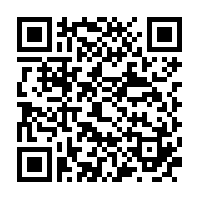Interpreting the Faith and Fourteen-Hundred Year-Old Traditions
17 July 2016
بسم الله الرحمن الرحيم
فَاسْأَلُوا أَهْلَ الذِّكْرِ إِن كُنتُمْ لَا تَعْلَمُونَ
(Surat Al-Anbiya: 7)
Ask the people of the book – the progeny of Rasulullah – if you do not know
This article was written by Shehzada Dr Aziz bhaisaheb Qutbuddin in 2016.
The text of the Quran is timeless - it is applicable even today, fourteen hundred years later. The same applies to the Shari’at that was revealed to Rasulullah SA. How does it apply today?
The differences that have arisen over the years have been primarily due to diverging interpretations of the Quran and by extension, the intent of Shar’iat stipulations.
We are fortunate that our Imams have taught us the correct understanding of the Qur’an and interpretation of the rules of Shariat. The Quran itself asserts “ask the people of the book – the progeny of Rasulullah – if you do not know” (Surat al-Anbiya’: 7). Just as Rasulullah was the authority on revelation – no one else could claim that an ayat of the Quran was revealed to them – Rasulullah’s Wasi was the authority on the meaning and intent of the Quran – no one else except his Wasi should have claimed that they could explain the meaning and intent of an ayat of the Qur’an. Every Imam in the progeny of Muhammad and Ali holds the authority to explain the correct understanding of the Qur’an and Shari’at. In the Imam’s seclusion this authority is vested in the Dai al-Mutlaq.
Interpretation of Shariat presents a challenge when applied to the modern era - in the last fourteen hundred years, the context in which the Quran was revealed, and Shari’at prescribed, has dramatically evolved. Notwithstanding, throughout the centuries our Hudaat have safeguarded the principles of our faith from mutation and exploitation. As Syedna Taher Saifuddin RA said in his qasida, “Aale Muhammad are the guardians of religion. Their nazaraat and alhaaz safeguard it.” In another qasida, referring to himself, Syedna Taher Saifuddin asserts, “they tell me to change [religion] and I will not change. I will fulfill my covenant to Allah Ta’ala.” Syedna Taher Saifuddin and all the Du’aat before and after him have fulfilled this duty of safeguarding the faith and contextualizing its lessons for contemporary times. While some change and mutate religion for political expediency, our Hudaat never compromise our values and principles.
Our Hudaat not only safeguard the Shari’at, but also show us how to live by it today – fourteen hundred years after it was prescribed. The principles of Shari’at are brilliant and timeless. In one sabaq, Syedna Fakhruddin TUS stressed that the institution of zakaat was in fact a social welfare system prescribed by Shari’at, fourteen hundred years ago. Islam made compulsory the education of boys and girls, fourteen hundred years ago. Shari’at ensured the basic of rights of women to own property and inheritance, fourteen hundred years ago.
Shari’at was and is a forward looking system of life. The key to preserving its integrity and intent is the correct interpretation and guidance. Our Hudaat have shown us this correct path - our Dai-z-zaman shows us the correct path.
When Syedna met the President of India Shri Pranab Mukherjee last week in New Delhi, he presented him with a copy of the thesis authored by Shehzada Dr. Abdeali Bhaisaheb Saifuddin. In the thesis he has – with the raza and doa of Syedna Burhanuddin RA and Syedna Qutbuddin RA – demonstrated the application of the principles of finance established by Shari’at in today’s financial system. Undeniably the financial system today is vastly different than the one that existed fourteen hundred years ago. The President – who was a finance minister for many years – was very interested in the thesis. In the conversation that followed he expressed his appreciation of the forward looking and dynamicleadership that Syedna represented – a modern interpretation of a centuries old tradition while safeguarding its principles. Syedna thus guides his followers in the 21st century, demonstrating how they may apply Shari’at in their everyday lives.
We are fortunate that we seek guidance and knowledge from those who know and those who have the divine authority to interpret and guide. We are fortunate that our Dai guides us and enables us to follow the Shari’at – as Rasulullah intended – fourteen years after it was revealed. We are an educated, peace-loving and respected community today because of our Hudaat’s the learned and correct guidance and interpretation of our faith. May Allah Ta’ala grant Syedna Fakhruddin Fath-e-Mubeen and may he continue to safeguard the principles of Shari’at while showing us how to live by it in an ever-changing world.


